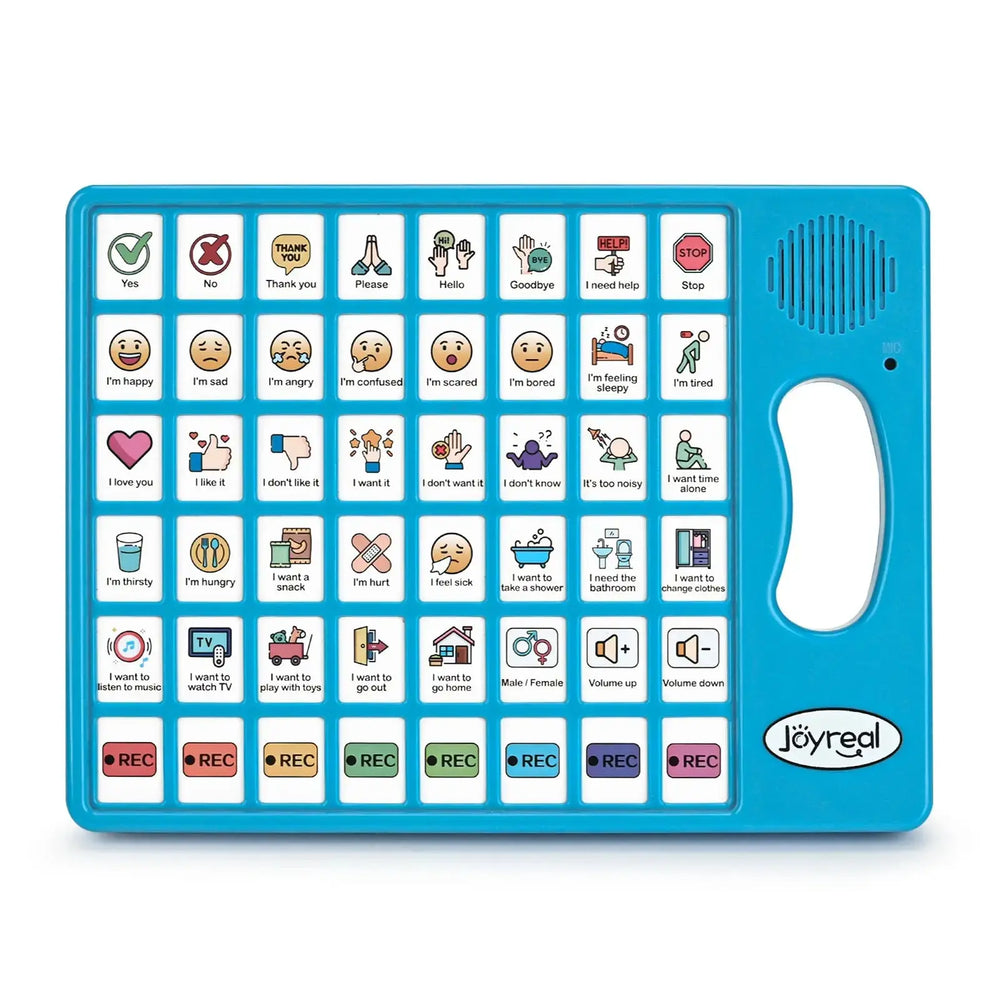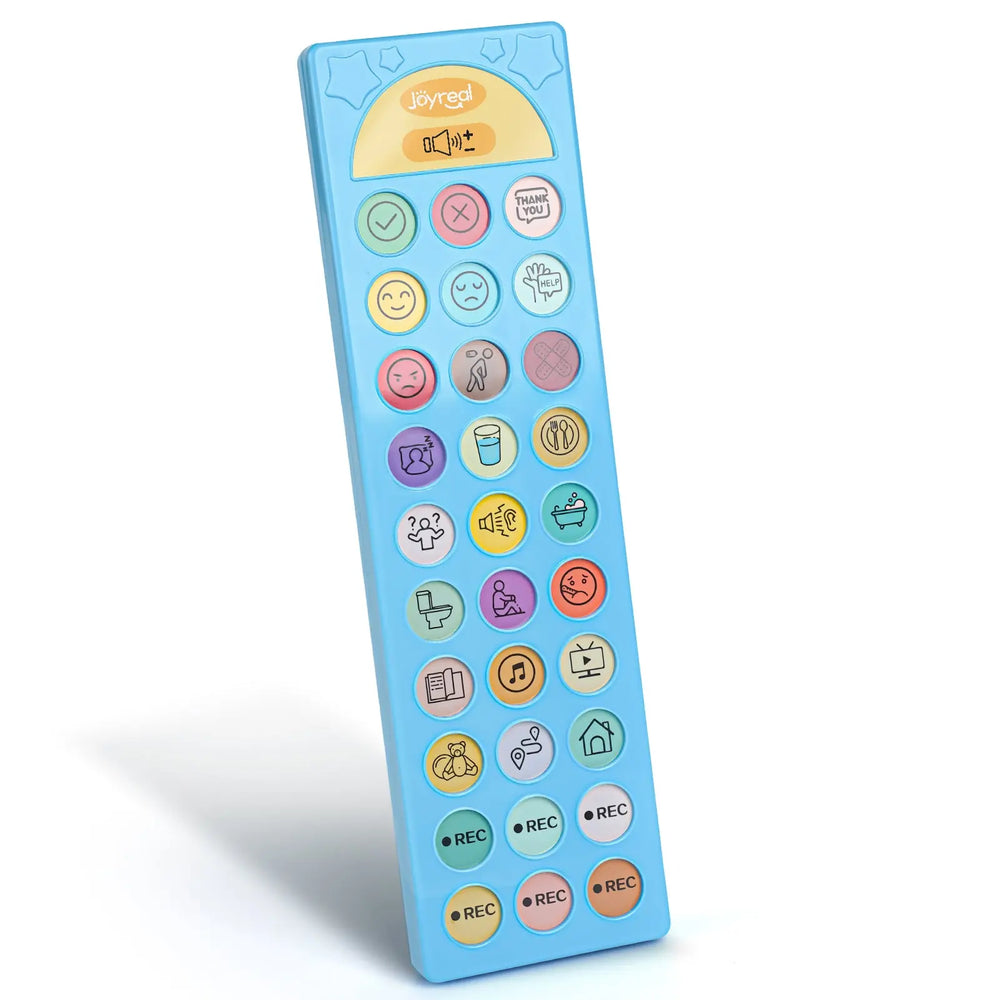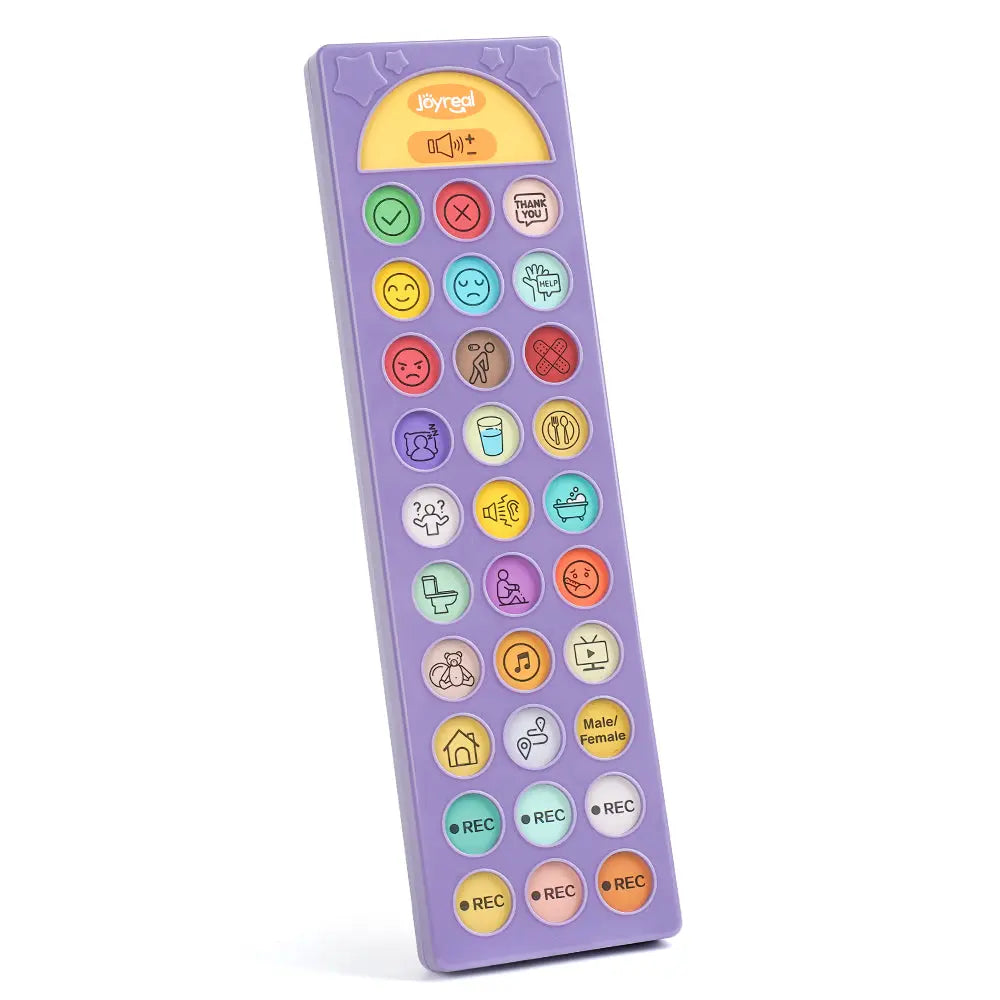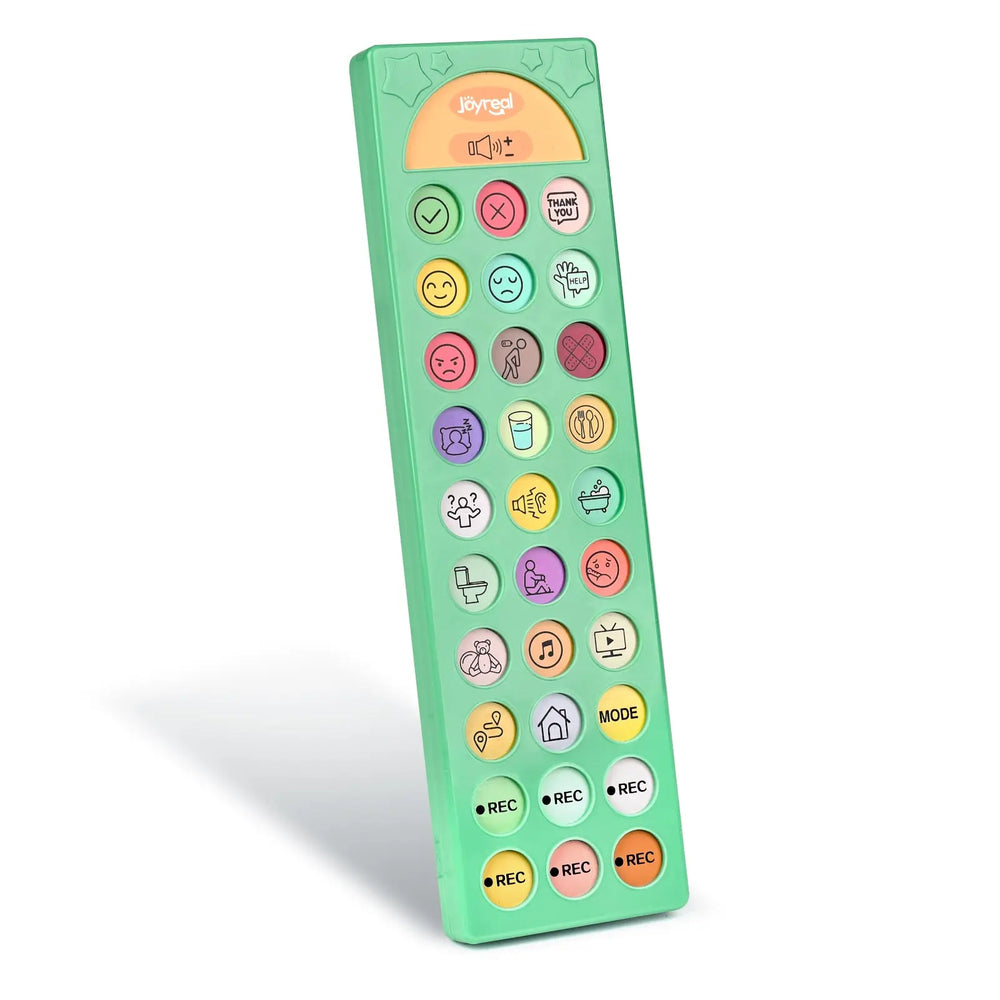Choosing the Best AAC Device for Kids: A Parent’s Guide
Why Choosing the Right AAC Device Matters
For children with autism, communication can be one of the biggest challenges. Parents often feel anxious and overwhelmed when their child struggles to express needs, emotions, or ideas. That’s why AAC devices for autism (Augmentative and Alternative Communication devices) have become such a valuable tool.
But here’s the problem:
- The market is crowded with options.
- Prices range from very cheap to extremely expensive.
- Parents worry about wasting money on the wrong device.
- And most importantly—will the device actually help my child communicate better?
These concerns are completely valid. An AAC communication device is not just a gadget; it’s a bridge that connects a child to their family, school, and community.
At Joyreal, we understand these worries. That’s why we design intuitive, durable, and child-friendly AAC devices, tailored to different learning stages and needs.
Common Types of AAC Devices (and Their Drawbacks)
Before diving into the Joyreal product range, let’s take a quick look at the common AAC device categories available:
1. App-based AAC (iPad/Tablet Apps)
- ✅ Feature-rich, huge vocabulary databases.
- ❌ Easy distraction (games, videos), battery issues, high costs.
2. Simple Button Devices (Basic Voice Recorders)
- ✅ Affordable, easy to start.
- ❌ Very limited, can’t grow with the child.
3. Dedicated AAC Communication Devices
- ✅ Specifically designed for communication, balance between usability and long-term growth.
- ❌ Quality varies by brand; not all are child-focused.
👉 Joyreal’s AAC devices fall into the third category: dedicated, screen-free devices that avoid digital distractions while supporting natural communication.
| Parent Concerns | Why It Matters | Joyreal’s Solution | Matching Product |
| What if I buy the wrong device? | What if I buy the wrong device? | What if I buy the wrong device? | Simple AAC Speech Device (entry-level, budget-friendly) |
| What if my child can’t learn it? | Too complex → frustration; too simple → outgrown | Progressive design: intuitive buttons, expandable recording options | Progressive design: intuitive buttons, expandable recording options |
| What if it doesn’t improve communication? | Parents fear wasted time & disappointment | Features tailored to real-world communication: voice switch & bilingual support | Autism Device w/ Male-Female Voice Switch, Spanish Bilingual AAC Board |
| Is it durable for everyday use? | Kids drop, carry, and use daily Child-safe, anti-drop, lightweight, long-lasting | Child-safe, anti-drop, lightweight, long-lasting | All Joyreal AAC devices |
The 4 Best Joyreal AAC Devices for Autism
Here’s a detailed look at how each device supports children at different stages:
1. Joyreal Simple AAC Communication Board
- Main Features: Few large buttons, basic recording, lightweight and durable.
- Best For: Young children just starting communication.
- Scenarios: Everyday home use, first words, initial expression training.
- Why Parents Love It: Affordable and stress-free introduction to AAC.
2. Joyreal AAC Communication Tool for Speech Therapy
- Main Features: Multiple preset buttons, custom recording, expandable vocabulary.
- Best For: Children expanding their communication skills.
- Scenarios: Speech therapy sessions, school classrooms, family interaction.
- Why Parents Love It: Grows with the child—suitable for both home and therapy use.
3. Joyreal Autism Communication Device with Male/Female Voice
- Main Features: Switch between male and female voices, stronger social naturalness.
- Best For: Children needing more natural communication in social settings.
- Scenarios: Classroom participation, community communication, public places.
- Why Parents Love It: Reduces stigma, helps children feel more confident in group settings.
 4. Joyreal AAC Board for Spanish Language
4. Joyreal AAC Board for Spanish Language
- Main Features: English/Spanish bilingual switch, simple buttons, clear icons.
- Best For: Bilingual families, children learning a second language.
- Scenarios: Home use, bilingual schools, cross-language interaction.
- Why Parents Love It: Makes communication smooth in multilingual environments.
| Product | Key Features | Best For | Scenarios | Price Level |
| Few large buttons, basic recording | Beginners, young kids | Home, first expressions | Entry-level | |
| AAC Communication Tool for Speech Therapy | Preset + custom recording, expandable | Kids expanding vocabulary | School, therapy, home | Moderate |
| Voice switching, more natural speech | Kids in social environments | School, therapy, home | Mid-high | |
| AAC Board for Spanish | Bilingual (EN/ES), simple buttons | Bilingual families, dual-language learners | Home, bilingual schools | Entry-level |
Conclusion: Helping Children Find Their Voice
Choosing the right AAC device for autism doesn’t have to be overwhelming. The key is matching the device to your child’s learning stage, environment, and unique needs.
With Joyreal’s AAC communication devices, parents can start small and progress step by step—whether it’s building first words, expanding vocabulary, expressing naturally in groups, or even switching languages.
👉 Already trusted by over 3,000 families worldwide, Joyreal is helping children break communication barriers every day.
FAQs
Q1: What are AAC devices for autism?
- AAC devices are communication tools designed to help children with autism express themselves using buttons, recorded speech, or voice output.
Q2: Are AAC communication devices difficult for children to learn?
- Not necessarily. Devices like Joyreal Simple AAC Speech Device are designed with large, intuitive buttons so beginners can learn step by step.
Q3: How do AAC devices differ from iPad apps?
- Unlike iPad apps, Joyreal AAC devices are screen-free, preventing distractions like games or videos, and are more durable for everyday child use.
Q4: Can AAC devices support bilingual children?
- Yes! The Joyreal Spanish Bilingual AAC Board allows children to switch between English and Spanish, perfect for multilingual households.
Q5: Are AAC devices for autism expensive?
- Prices vary. Joyreal offers a range from entry-level to advanced, so families can choose a device that fits both their child’s needs and their budget.
Q6: Which AAC device is best for school use?
- The AAC Communication Tool for Speech Therapy is ideal for classrooms and therapy sessions, while the Voice Switch Device helps with group social interaction.

Maybe it will be helpful for you:
Recent Post

This Valentine’s Day, Give Them Your Time
Why Playtime Together Is the Most Meaningful Gift for Growing Child...

From the Beach to the Bath: One Summer Toy Kids Use All Season
Which Sand Toys Help Kids Focus—and Which Ones Are Truly “Buy Once,...

Montessori Toys for 1 Year Olds: The Right Toys for Early Development
Do 1-Year-Olds Really Need Toys — or Just the Right Ones? When your...

Editor’s Picks: Best Kids Gardening Sets & Beach Toy Sets for Summer
Summer is the perfect season to get kids outside — digging in the g...

Busy Board or Communication Device? A Joyreal Guide for Autistic Toddlers
One Question Every Autism Parent Asks Every autism parent faces thi...

When Are Busy Boards Not Enough for Autism?
For many autistic children — especially those who are non-verbal or...

Busy Board for 1 Year Old vs 2 Year Old: What’s the Difference?
Busy boards have become one of the most popular Montessori-inspired...

How AAC Devices Help Autistic Individuals Manage Overwhelm
Autistic people can feel overwhelmed when their brains receive mor...

DIY Busy Board for Toddlers: What to Add
Why Busy Boards Are Every Toddler’s Favorite Toy Every parent knows...

Do Wooden Push Walkers Really Help Babies Walk?
Every Parent’s Fear: “Will My Baby Walk Safely?” That moment your b...














